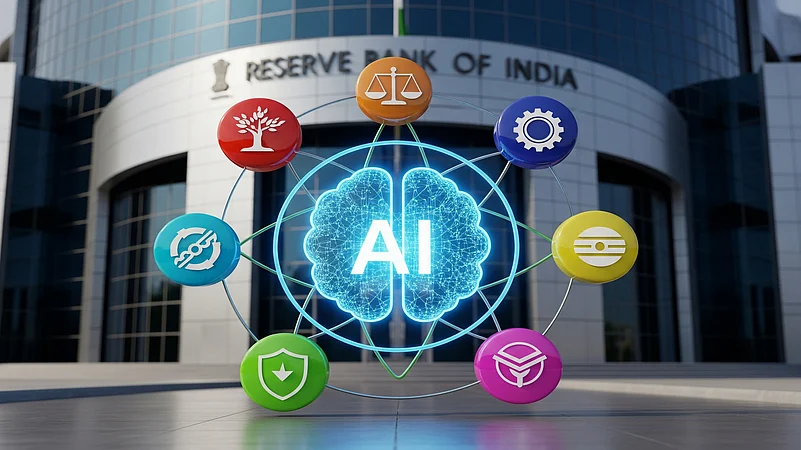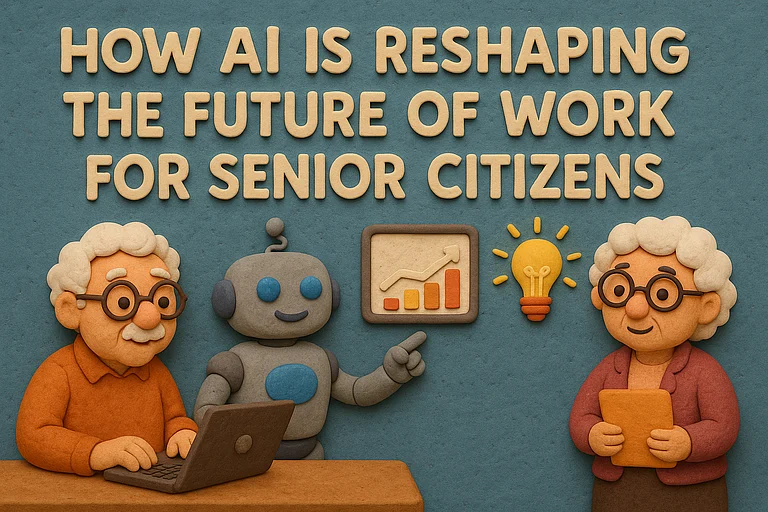
Summary of this article
· RBI's FREE-AI framework includes seven guiding principles to govern AI
· Trust, fairness, and accountability are central to the framework
· Six pillars aim to foster innovation and mitigate risks in AI use
The Reserve Bank of India (RBI) released its Committee Report on Framework for Responsible and Ethical Enablement of Artificial Intelligence (FREE-AI) last week. The framework lays down seven guiding principles or “Seven Sutras” for governance, development, and deployment of AI in the financial sector. In December 2024, the RBI announced that it would form a specialised committee to provide recommendations to tackle AI-related challenges. The aim was to address ethical concerns and the responsible integration of AI in the financial system.
Now the framework has been released with seven guiding principles and six pillars, and 26 recommendations to ensure that society gains from the technology while mitigating risks. As the framework reads, “Multi-modal, multi-lingual AI can enable the delivery of financial services to millions who have been excluded. When used right, AI offers tremendous benefits. If used without guardrails, it can exacerbate the existing risks and introduce new forms of harm. The challenge with regulating AI is in striking the right balance, making sure that society stands to gain from what this technology has to offer, while mitigating its risks.”
Here are the Seven Sutras it introduced in the framework.
Seven Sutras Of FREE-AI Framework
1. Trust is the Foundation
Trust is the foundation and non-negotiable in the financial sector. The committee recommends that AI should not erode trust in the financial system. Trust should be at the core of an AI system to bring innovation. It says that it is “essential to build trust in AI” and “build trust through AI systems”.
2. People First
This principle recommends that while AI can improve efficiency and outcome, humans should be able to override AI, and thus the final authority should lie with humans. This is extremely important for human safety and social benefit. So, to build trust in AI, human safety and interest should be kept at the centre.
3. Innovation Over Restraint
The framework prefers innovation over restraints and recommends responsible AI innovation that can improve the system, maximise overall benefits, and reduce potential harm. In short, AI’s use for “impactful innovation” should be encouraged.
4. Fairness And Equity
The framework deals with the potential biases in the AI system and lays down the principles of unbias and financial inclusion. This guiding principle requires that AI be developed and designed in a way that does not increase inequity. Instead, it should be used to enable people to access financial services and promote financial inclusion.
5. Accountability
The accountability should be fixed on the entities using AI for automating their functions and the resulting outcomes and decisions they make based on it. Simply, there should be clear accountability, and it cannot be assigned to an algorithm or a digital model.
6. Understandable By Design
This principle stresses that the AI should be designed so that it is easily understandable by the entities using its outcomes. Besides, an AI system should make proper disclosures. This will help in building trust while deploying them.
7. Safety, Resilience, And Sustainability
The last principle in the list emphasises secure, energy-efficient, and resilient AI systems. According to it, an AI system should be able to identify anomalies and issue a warning to prevent harmful outcomes. Sustainability should be considered while leveraging AI systems to improve efficiency.
These seven principles set the base of the FREE-AI framework and are applicable to all entities that are involved in building, deploying, or governing AI in the financial sector in India. These principles should be part of the government policies and frameworks, and institutions’ operational and risk mitigation systems.
Besides these seven principles, the framework recommends six pillars, which are put into two categories.
Six Pillars Of The FREE-AI Framework
• Fostering Innovation – The three pillars under this category are: building infrastructure to support AI innovation, deploying adaptive policies and regulations for responsible adoption of AI, and developing human skills and institutional capacity to use AI effectively
• Risk Mitigation – The three pillars include, robust governance structure for AI-based decisions and actions, adequate safeguards to prevent and protect from harm, and establishing a mechanism for continuous oversight of AI systems.
The framework aims to ensure a responsible and ethical use of AI that balances innovation with accountability.
















